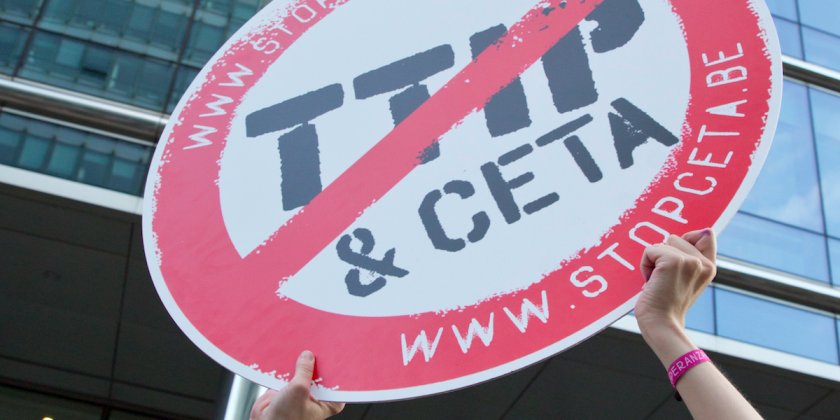Franchising, retail, business

24/10/2016
The landmark EU-Canada free-trade deal, known as CETA, officially broke down on Monday after the Belgian region of Wallonia refused to approve it.
The collapse of the deal means over seven years of multinational negotiations have come to nothing. "It won't be possible to respect this ultimatum," the head of Wallonia's Parliament, Andre Antoine, told Belgian radio.
Business Insider spoke to Linda Lim, trade expert and professor of strategy at the University of Michigan's Ross School of Business, to find out what the implications of the failed deal will be for the EU and Britain's hopes of striking its own free-trade deal with the 28-nation bloc once Brexit is complete.
"Yes, the breakdown comes as a surprise," Lim said over the phone.
"I assumed given the long period of negotiations that all this would have been worked out within the EU. They work out a lot of stuff. I'm surprised they didn't sort this out in terms of negotiating with Walloon."
She added: "I'm surprised such a small place can hold so many people hostage.
"That clearly speaks to the institutional problems that the EU really should have sorted out. It sets a really bad precedent. If you let this continue, any small group of people can hold 500 million people hostage. The reasons, in this case, are not frivolous, but it should have been negotiated and not allowed to happen in the first place."
"I think people will be very reluctant to enter negotiations with the EU until the EU can get itself together, frankly."
The collapse of CETA has cast serious doubt on whether Britain will be able to negotiate a free-trade deal with EU, once it formally completes Brexit.
Donald Tusk, the European Council president, hinted last week that failure to complete the deal would make striking post-Brexit trade deals with Britain nearly impossible.
"If you are not able to convince people that trade agreements are in their interests ... we will have no chance to build public support for free trade, and I am afraid that means that CETA could be our last free-trade agreement," he said
When we put this to Lim, she told us that the failure of CETA should be a cause for concern for Britain ahead of its formal withdrawal from the EU.
"The unwinding is going to be difficult, particularly if Britain takes a hard stance on refusing to accept certain conditions which might be important to some province or region in the EU. If this [CETA] doesn't go through it makes it much more difficult for Britain to negotiate something with the EU. Even before the CETA collapse, it was always going to be difficult for Britain to get every party in the EU to agree to a deal."
On what the CETA saga means for the EU's reputation in general, she added: "It's not good."
"The EU has a lot of trade deals with smaller countries like Mexico and so on but this means it can't do any bigger deals — particularly the one with the US, which is much bigger than the one with Canada. Other entities will be very reluctant to enter into something which could take 7 years but leave you with nothing.
"Given that there is already sizable opposition to trade deals in most countries, even if just a minority, and given the huge resource and political cost, I think people will be very reluctant to enter negotiations with the EU until the EU can get itself together, frankly."
Some Leave voters have used the failed CETA deal as an example of the EU's dysfunctionality — one of the arguments Brexiteers cited as evidence that Britain should vote to leave ahead of the June referendum.
Lim wasn't impressed by this argument. In fact, she said it would be much better for staunch Brexiteers if the EU had managed to push CETA through.
"The problem is that even if you accept that it's not to Britain's advantage," she said.
"If it's dysfunctional, how does Britain unwind? You can't avoid the fact that the EU is Britain's largest trade partner. It is not a body you can say no to without suffering big economic costs.
"The discussion in the UK was 'we should leave the EU so we can strike trade deals with China, America, etc'. I don't think it's that easy. It's not that it's easier to make deals with other states if you leave the EU.
"The EU may be dysfunctional but you are already 100% with them until this point — what difference does the EU being dysfunctional actually mean for the UK? I don't see what pleasure you can get from saying it's dysfunctional.
"It's much better for Brexit if it wasn't."
Fonte:http://uk.businessinsider.com/trade-expert-ceta-belgium-eu-canada-brexit-2016-10